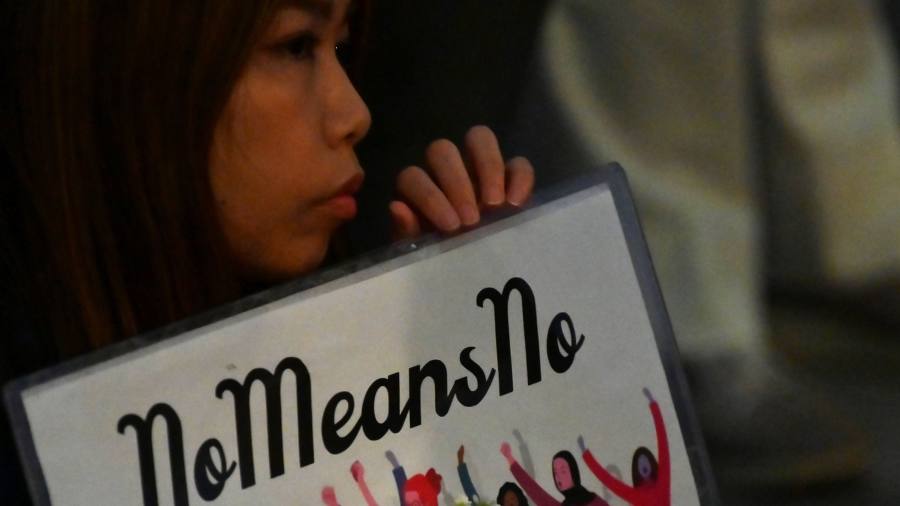Japan on Friday passed legislation to increase the age of sexual consent from 13 to 16 and broaden the definition of rape, as part of a landmark reform of what critics have complained is an antiquated penal code.
The revisions approved by the upper house of Japan’s Diet to the law on sexual offences change the age of consent for the first time in more than a century in order to strengthen the protection of children from abuse.
The reform comes amid unprecedented domestic and international pressure on Asia’s richest democracy to reform a legal system accused of preventing many women from obtaining justice for sexual abuses and harassment.
Japan has had the lowest age of consent among the G7 countries, but the change to the 1907 clause in its penal code will bring it into line with most US states, the UK and Canada.
The new law also redefines rape from “forced sexual intercourse” to “non-consensual sexual intercourse”, broadening the conditions under which the offence can be prosecuted.
The existing law has long been criticised by human rights groups and sexual assault victims for making rape prosecutions extremely difficult because it in many cases required evidence to be provided that the victim was unconscious or unable to physically resist.
Public calls to strengthen protection for women and girls intensified following a series of rape charge acquittals in 2019.
The new legislation will allow prosecutions even in the absence of physical violence or intimidation and sets out eight scenarios under which sexual intercourse can be considered rape. The circumstances include where a victim is intoxicated with alcohol or drugs, caught “off guard” or subject to an abuse of authority.
Tomoyuki Mizuno, a former judge who is now a criminal law professor at Hosei University Law School, said Japan had been slow in reforming its laws on sexual assault because of the dominance of men in positions able to influence changes to the legal framework.
“There wasn’t enough awareness for sexual crimes because society was male-dominated, but it is changing in the wake of increasing calls from victims,” Mizuno said. “The revision will make it easier for victims and investigative authorities to know which cases could be criminally punishable.”
But some experts said there was still ambiguity in the definition of rape, with more clarity needed on what situations would meet the requirement for a victim to find it difficult “to formulate, express or fulfil his or her intention to resist”.
“While the revision appears to make the definition of the sexual offence explicit, there are still areas that make it unclear which actions should be penalised,” said Yukiko Kubo, a Tokyo-based lawyer who handles sexual offence cases. Kubo said there was also a risk sexual activities with actual consent could be considered offences under the new scenarios.
Some NGOs said the revision fell short of bringing Japanese law into line with international standards, with Tokyo-based group Human Rights Now calling for the crime of rape to be defined as “all non-consensual sexual intercourse”.
Earlier in the day, Japan also passed a bill to “promote understanding” of LGBT+ issues. Critics said the law failed to provide human rights protection, but the government was keen to push it through after it faced international scrutiny as host of a G7 summit in Hiroshima last month for being the only member of the group not to recognise same-sex marriages.
Read the full article here




